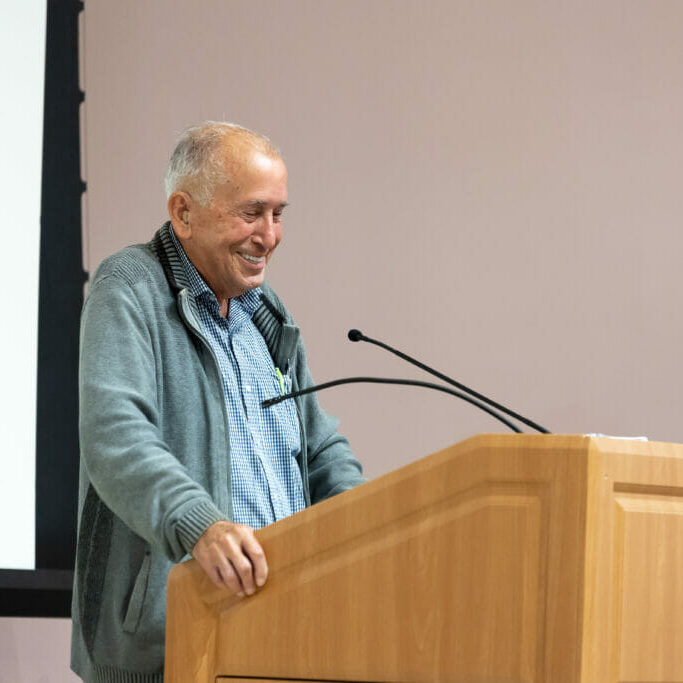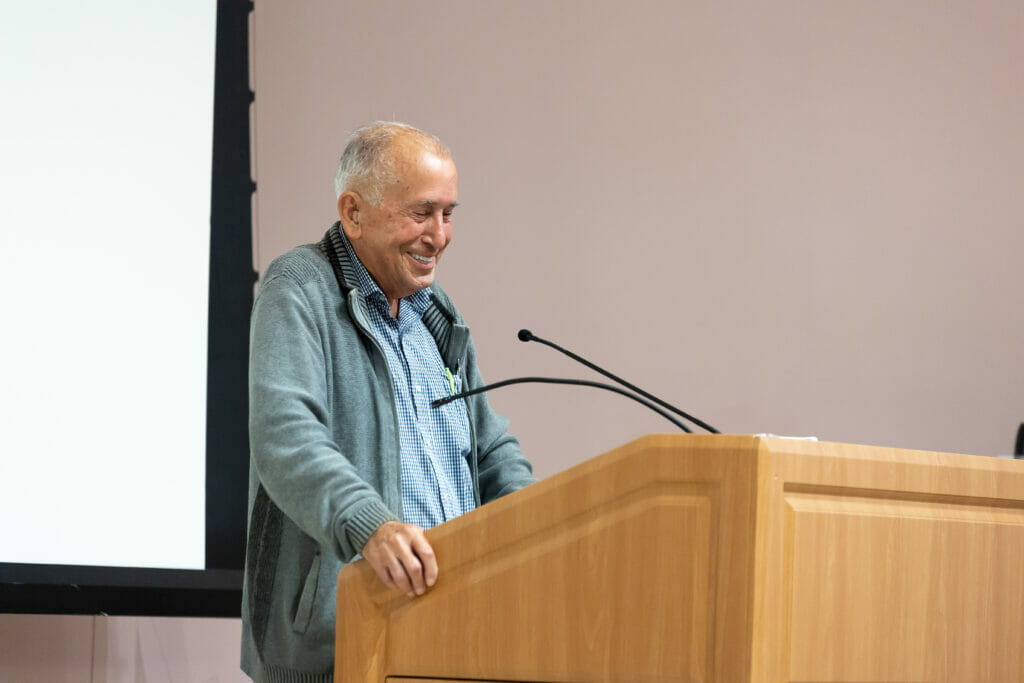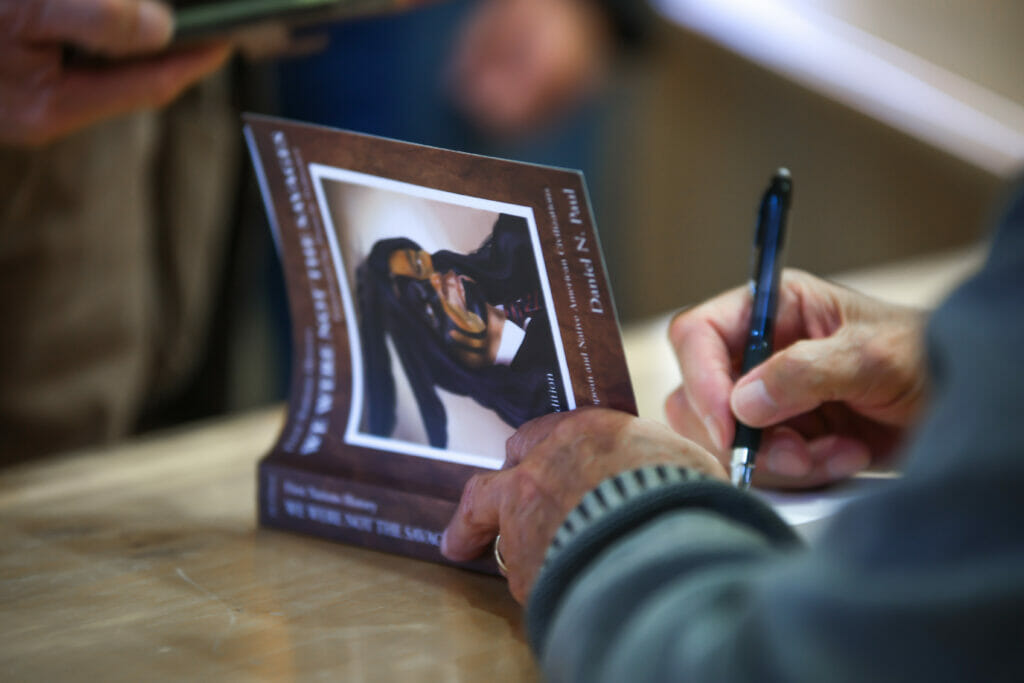
We Were Not the Savages book launch
“History as it transpired, not as a fairytale”
Daniel N. Paul launched the fourth edition of his seminal book, We Were Not the Savages, on Sept. 30, the second annual National Day for Truth and Reconciliation.
Dozens donned orange shirts and gathered in the New Academic Building at the University of King’s College to honour Paul. The event was organized by Dorota Glowacka, a Holocaust scholar and professor in the contemporary studies program at King’s. It opened with drumming by Mi’kmaw singer, educator and filmmaker Cathy Martin.

The event
Pamela Palmater, who penned the foreword for the new edition, inaugurated the event with a moving keynote. Palmater is a Mi’kmaw lawyer, professor, author, activist and politician, who credits her passion for activism and writing to Paul.
Calling Paul “a voice for us when it wasn’t safe to speak,” Palmater shared how We Were Not the Savages confirmed everything the Mi’kmaq already knew about their own history but was largely silenced through ongoing colonial violence.
“Everything he does is for us,” Palmater said, “and when I say ‘us,’ I mean everyone in Mi’kma’ki.”
In 1986, Paul quit his government job to volunteer his time to help develop the Confederacy of Mainland Mi’kmaq — a not-for-profit organization that promotes Indigenous self-determination through programs and initiatives. Undoubtedly, Paul’s commitment has always been to his community first.
We Were Not the Savages embodies this commitment. Originally published in 1993, the book chronicles the history of the Mi’kmaq people. Each subsequent edition (2000, 2006 and 2022) has been revised and expanded to include new information that Paul has recovered from archives, stories in the community and changes to language and policy.

Highly-anticipated launch
During the launch, attendees lined up to have their copies of the book signed. Some had old, well-worn copies of the first edition.
When Paul finally took to the podium to speak, the crowd went silent.
Paul shared stories about how he spent his life trying to overcome the “inferiority complex” he learned as a Mi’kmaw child in Canada. While in school, he was told he came from a “savage culture.”
When he and his mother hadn’t eaten for days, they went to the “Indian agent” for food. The agent made his mother beg for hours before finally feeding them. Paul, then and there, vowed to never let humiliating experiences such as that happen to his people.
At age 17, he moved to Boston and spent some time working in a factory. The inferiority that Paul carried in his body language caught the attention of someone else in the factory, who questioned his knowledge about the history of his people. The correlation between his ancestral knowledge and inferiority complex inspired Paul to learn more about the history of the Mi’kmaq.
Standing tall and proud in front of the crowd at his book launch, he stated, “the Mi’kmaq were a people who had a great civilization.”
Paul shared the wonderful news that radiation treatments he’d been receiving this year for his lung cancer have been successful. Tears filled the eyes of his listeners as applause filled the room.
History told “as it transpired, not as a fairytale.”
His final remarks were a call to action, stating it’s time we write our histories as they transpired rather than as fairy tales. Paul called on European institutions to write these histories and to apologize to BIPOC around the world, for the damage colonialism and its legacy has caused.
King’s President William Lahey acknowledged the role of the university in the history of colonization and how it, like many institutions on Turtle Island (the original, Indigenous name for North America), has benefited from the mistreatment of Indigenous nations. However, he admitted that acknowledgement is not enough. He promised King’s will do its part in reconciliation.
Paul’s call to action was met with a standing ovation. His words permeated each of us standing in the crowd. His book continues to provide the opportunity to look at the history of the Mi’kmaq as it transpired, not as a fairytale.
For those Mi’kmaq, like myself, growing up in a world that has consistently told our ancestors that they come from a savage culture, Paul continues to give us the voice to proudly proclaim, “we were not the savages!”






